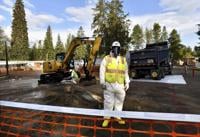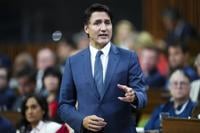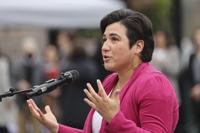An Ontario board of health is asking the province to amend the building code to mandate higher standards for ventilation, in light of the spread of COVID-19.
The chair of the board of health in Peterborough, Ont., wrote this month to Health Minister Sylvia Jones and Municipal Affairs and Housing Minister Steve Clark to urge the province to apply one of the lessons learned from the pandemic.
"We've learned a great deal about COVID-19 since the pandemic began, most notably, is that COVID-19 is an airborne virus, and does not spread as easily as we once thought by touching contaminated surfaces," Kathryn Wilson wrote.
"Improvements to indoor air quality of the spaces we occupy are necessary and life-saving to truly control how the SARS-CoV2 virus and other respiratory/airborne pathogens spread."
One change Wilson's letter suggests is to requirements for housing and small buildings. Current rules mandate mechanical ventilation at a rate of either one or half an air change per hour, depending on whether the space is mechanically cooled in the summer.
The board of health calls for at least six air exchanges per hour and the use of HEPA filters or filters with a MERV 13 rating in HVAC systems. Those high-grade filters are what Ontario has used in schools with mechanical ventilation systems during the pandemic.
Those standards would align with recommendations from the Ontario Society of Professional Engineers, Wilson wrote.
"We must start including the quality of the air we breathe when we think of and refer to the safety of indoor settings," she wrote.
"The (Ontario Building Code), like other building and construction codes in Canada, emphasizes air tightness and energy efficiency to cope with winter cold and summer heat, and while these too are important objectives, this may unintentionally result in poorly or under-ventilated public and private settings, creating additional threats to public health and safety."
Ontario is working on harmonizing its building code with national construction codes, in an Ottawa-led effort, and the Ministry of Municipal Affairs and Housing said the province's next edition of the building code is expected to be finalized this year and in effect next year.
"The updates reflect technological advancements, expert research, government priorities, and input from stakeholders," ministry spokesperson Nazaneen Baqizada wrote in a statement.
"Currently, the ministry is analyzing consultation feedback and 好色tv Building Code provisions with respect to ventilation standards."
The Peterborough Board of Health also wrote to the federal government, asking it to explore grants, tax breaks or other incentives to help organizations and small businesses upgrade their ventilation to meet those standards.
Infrastructure Canada wrote in a statement that the federal government has given nearly $2 billion to 2,156 projects across the country to improve ventilation in public buildings and upgrade health infrastructure.
As well, it pointed to guidance on ventilation that the government has issued.
"Good indoor ventilation helps prevent the spread of respiratory viruses and keep 好色tvs safe," it said. "The government of Canada will continue to put tools at communities' disposal to enable them to improve air quality in public settings."
This report by 好色tvwas first published March 16, 2023.








































